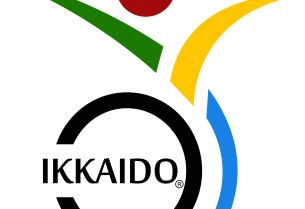
Organizations database
Ikkaido
Sport federation
 kkaido is an NGO and a registered charity based in Oxford.
kkaido is an NGO and a registered charity based in Oxford.
The Ikkaido 6E Process is how we ensure full inclusion.
1. Engagement:
In order to encourage participants to realise their self-worth and potential in society, the first barrier to cross is their engagement. Inclusive Martial Arts (IMA) has proven to be an immensely powerful sport tool in engaging marginalised groups. Ikkaido takes a holistic view of inclusion as a reflection of society. All demographics of people are included rather than targeting specific groups, such as persons with a disability. Inclusion cannot be achieved through segregation.
2. Empowerment:
There is a persistent sense of powerlessness in marginalised people; persons with a disability are often targets for violent crime, including homicide and rape. Ikkaido delivers the same adapted self-defence techniques to all participants to combat this sense of impotence. Previous Erasmus+ KA1 empowerment projects used self-defence alongside reflective non-formal learning activities. Participants are empowered to design, deliver and manage future exchanges.
3. Education
Ikkaido is a Recognised VET Centre regulated by OFQUAL in the development, writing and delivery of accessible sport qualifications, with coaching and inclusion theory as the two core modules.
4+5: Employment and Entrepreneurship:
Ikkaido improve the employment and entrepreneurial skills of young people with fewer opportunities by exploring roles in event management for creating Ikkaido Festivals of Inclusive Martial Arts around Europe. Participants explore their dream jobs through SWOT analyses. Entrepreneurial skills encourage them to become changemakers in society.
6: Eudaimonia:
Eudaimonia is the final stage of inclusion. It is human flourishing in society; a person, regardless of their disadvantages, functioning to their fullest potential and realising changes in their community.
In line with this strategy, Ikkaido's board and staff are all persons with a disability and fewer opportunities.
Testimonials








 Project "Sport Diplomacy Academy" /2018-1-EACS-EMS-000114/ is co-funded by the European Union. This webpage and the information / publication / communication reflects the views only of the author, and the
Commission cannot be held responsible for any use which may be made of the information contained therein.
Project "Sport Diplomacy Academy" /2018-1-EACS-EMS-000114/ is co-funded by the European Union. This webpage and the information / publication / communication reflects the views only of the author, and the
Commission cannot be held responsible for any use which may be made of the information contained therein.


